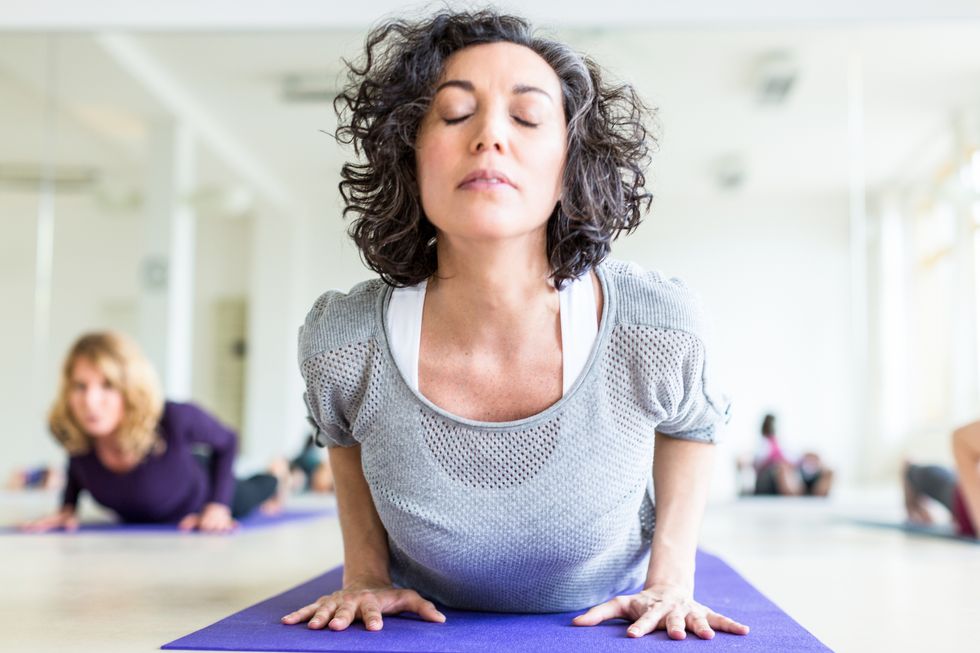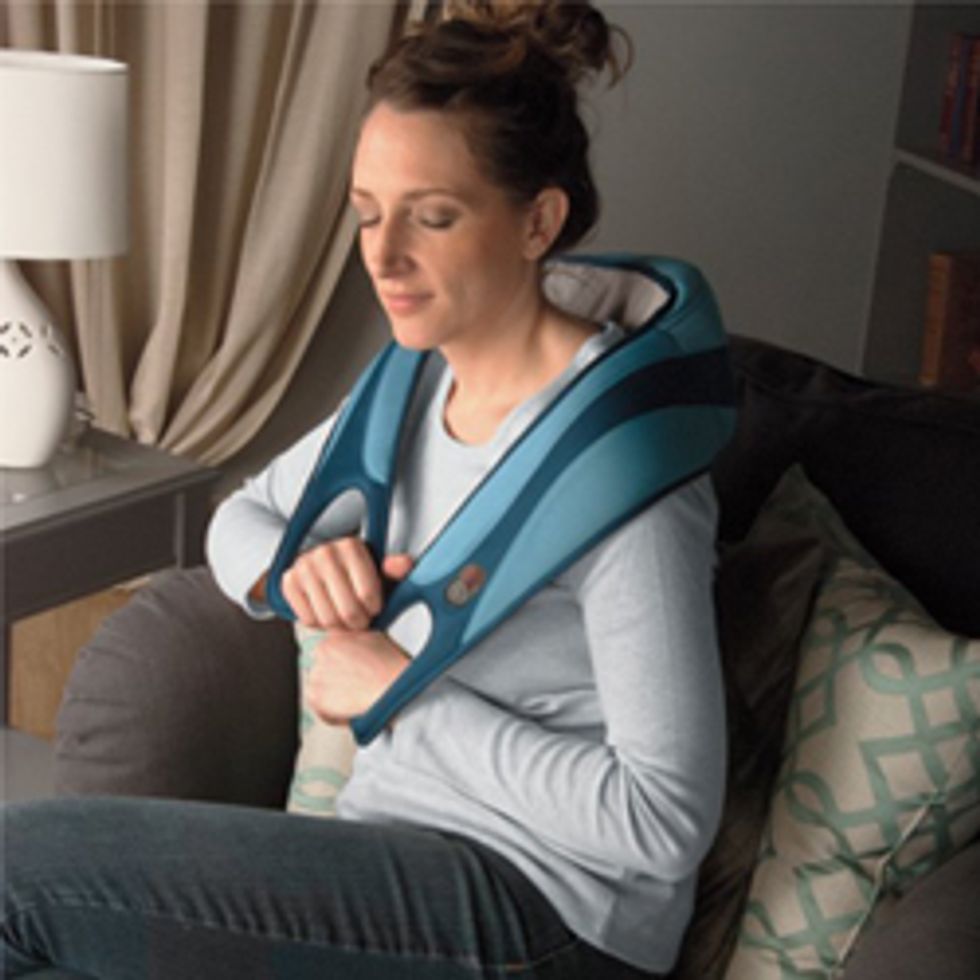The pain began as a dull off-and-on ache between my shoulder blades. But then, seemingly overnight, it progressed into a persistent, sharp and stinging sensation that moved beyond my neck and down into my arm. The unrelenting pain woke me up—and kept me up—at night.
And the more I felt the pain, the more I tensed up and the tighter my muscles became, which only added to my discomfort.
In no time, I became stressed and sedentary, short-tempered and depressed.
After spending considerable time trying all my options, the only thing that would alleviate my pain was surgery for the bone spurs in my neck that were crushing my nerves. My pain—both physical and psychological—was finally relieved.
 I wish I had this Heated Deep Knead Shiatsu Massage Wrap by Wahl when I was dealing with my neck and upper back pain. If so, I'd bet it would have helped relieve the extreme muscle tension I was dealing with each day and helped me get more sleep. But it's good to know it's available now—just in case I ever need it. The massage wrap does double-duty: It offers heat therapy to help increase blood flow and loosen muscles, plus six shiatsu massaging nodes to relieve your muscle tension and soreness. (If you've never had a shiatsu massage, it's a wonderful and healing Asian massage technique that means "finger pressure" and causes you to say "ahhhh" a lot.)
I wish I had this Heated Deep Knead Shiatsu Massage Wrap by Wahl when I was dealing with my neck and upper back pain. If so, I'd bet it would have helped relieve the extreme muscle tension I was dealing with each day and helped me get more sleep. But it's good to know it's available now—just in case I ever need it. The massage wrap does double-duty: It offers heat therapy to help increase blood flow and loosen muscles, plus six shiatsu massaging nodes to relieve your muscle tension and soreness. (If you've never had a shiatsu massage, it's a wonderful and healing Asian massage technique that means "finger pressure" and causes you to say "ahhhh" a lot.)
My experience is not uncommon. Chronic pain is all-too-familiar for at least 100 million adults in the U.S., according to the Institute of Medicine, who reports it is more prevalent than cancer, heart disease and diabetes combined. The physical and emotional stress of chronic pain takes its toll, not only on the person who is suffering, but on the people around them as well. If you're experiencing it, you don't have to fall into a deep, dark hole.
Aside from my favorite way to cope with pain—at-home massage—here are some other tips and strategies to keep you on firm footing, so that pain doesn't get the better of you.
Keep moving. It might be tempting to curl up into a ball and remain stationary but staying active can help keep your mind off your pain and release endorphins, which reduce your perception of it. Gentle activities like yoga, swimming, walking or stretching can even be beneficial: just remember to pay attention to your physical limitations, and don't take on more than you can manage.
Distract yourself. It can be tough to get your mind off pain, which can sometimes appear like an endless reel running in your brain. But it's worth a try. Immersing yourself in a hobby or creating pleasant experiences can help focus your mind on something better. Watching a movie, taking a walk in nature, gardening, visiting a museum or sitting down with some crayons and a coloring book can all help flip that switch.
Opt for optimism. Being in pain can be soul-sucking and make you feel like nothing is going right. Although it's hard to break out of that cycle, it's important to retrain your focus and instead concentrate on things that you can do. Ellen Slawsby, PhD, who is a psychologist and director of the mind/body chronic pain services at Massachusetts General Hospital's Benson-Henry Institute, suggests one way to do this is to keep a gratitude journal, which can give you a "more accurate view of yourself and the world at large."
Reach out. As that old song goes, we all need someone to lean on. Being in pain is somehow better if you have someone you can share it with (not your actual physical pain, but your emotional pain). Along with giving you permission to complain, a close friend, family member or professional mental health provider can help you reframe your thinking and offer support and understanding.
Try deep breathing and meditation. Tight muscles can cause pain—but conversely, pain and its ensuing stress can also cause muscles to tighten. Yoga, tai chi and meditation with guided imagery can all help stretch and strengthen tight muscles and bring your mind to a calmer and more restful place.
This post originally appeared on mysocalledmidlife.net.


 I wish I had this
I wish I had this 




